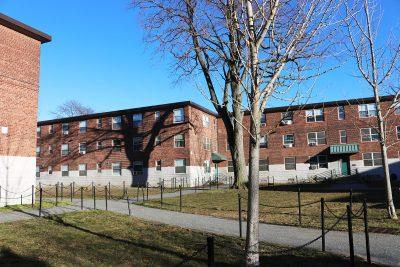
Activists and state representatives spoke to and reviewed acts for changes to public housing policy in the Commonwealth during a virtual public hearing Wednesday afternoon.
Public housing — housing funded by the Department of Housing and Urban Development — is a more affordable option for low-income families and individuals.
There are approximately 1.2 million households in public housing across the United States, according to HUD, with roughly $7 billion spent on public housing.
The Boston Housing Authority is the public agency that provides public housing for more than 25,000 Boston residents and Tenant-Based Section 8 vouchers — HUD’s program for assisting low-income families and people to rent housing in the private market— for approximately 29,000 residents, according to the BHA website.
Redevelopment and modernization efforts are underway for public housing in Boston “to preserve them for future generations,” Brian Jordan, a spokesperson for the BHA, wrote in an email statement.
“As part of that effort, our priority is to ensure that every single unit of affordable housing we currently have is preserved, and that the families that live in them are able to stay,” Jordan wrote in the email.
Public housing is impacted by underinvestment, racial discrimination and discrimination based on people’s criminal records.
Rebekah Levine Coley, a professor of applied developmental and educational psychology at Boston College, said underinvestment can also impact the wellbeing of families and child development because of their location in underinvested and high-poverty communities.
“Due to the underinvestment in public housing and the policies that have historically located public housing developments in communities that are underinvested in,” Coley said. “There’s lots of evidence that concentrated poverty communities are detrimental for children, both their educational success and their general health and well-being.”
Leslie Credle, the founder of Justice 4 Housing, an organization that focuses on finding public housing for previously incarcerated individuals, said a partnership with the BHA has allowed them to provide Section 8 vouchers to individuals released in the past two-and-a-half years.
Individuals with certain types of criminal records are ineligible for public housing, according to the 1996 Housing Opportunity Program Extension Act.
Credle said parents should not have to choose between leaving public housing or losing their housing voucher and removing their child off the lease if their child is arrested.
“It’s going to perpetuate the cycle of incarceration,” Credle said. “[The child is] going to end up incarcerated, [they] might end up getting killed. You don’t know what’s going to happen to that child if they have to leave a supervised house where [their] mother is supervising [them].”
The BHA said they are readjusting public safety in their housing by moving to community-based policing, problem-solving and prevention methods, according to the email statement.
“The BHA Public Safety department is committed to working with residents, and internal and external partners to ensure fair, inclusive and equitable policing solutions for all that we serve,” the spokesperson wrote.
Some current redevelopments of public housing in the city are focused on creating mixed-income communities that will improve the quality of the housing and of the residents, such as one at the Mary Ellen McCormack development in South Boston, Coley said.
“The theory also is that having a more economically integrated neighborhood will lead to improvements in the broader community,” she said. “So we’ll attract more businesses, higher-quality educational opportunities and healthcare and other kinds of services to the community and help to improve the opportunities and the well being of the current residents in those communities.”
Public housing has done well by helping people pay rent, but they have also harmed families with previously incarcerated individuals, Credle added.
“I’m trying to address the collateral consequences from excluding individuals coming home from prison. [Public housing is] their last resort, they cannot afford rent, especially the rent in Boston,” Credle said. “We should have second chances for folks.”





















































































































